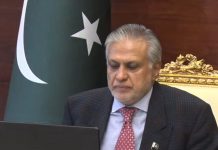DM Monitoring
ANKARA: Foreign Minister Mevlüt Çavuşoğlu has embarked on a historic visit and busy schedule in Brussels to consolidate Turkey-European Union ties after a rough patch in 2020 by visiting officials from all main EU bodies, including the commission, council and parliament as well as NATO’s secretary-general.
During his three-day visit that started Wednesday, Turkey’s top diplomat met with EU parliamentarians, the bloc’s foreign policy chief Josep Borrell and European Council President Charles Michel. Though a meeting was not scheduled with European Commission President Ursula von der Leyen, she participated in Çavuşoğlu’s meeting with Vice President Margaritis Schinas, which was read by diplomatic circles as a reciprocal move by the bloc and a will to redress ties with Ankara.
“The European Union has a strategic interest in the development of a cooperative and reciprocally beneficial relationship, anchored in values and principles. The meeting between J. Borrell and M. Çavuşoğlu permitted a cordial, frank and thorough exchange of views in order to advance in this direction,” the EU said in a written statement late Thursday following a meeting that took more than three hours, which was also perceived as a positive signal.
EU officials and Turkey were able to set a positive agenda for the year 2021 and mutually address concerns as well as expectations for the future. However, Ankara still believes that a positive atmosphere on its own will not be enough and wants to see concrete actions and the fulfillment of previous promises.
Relations in 2020 were beset by developments in the Eastern Mediterranean, which became largely a field of dispute over drilling rights and maritime borders. Turkey and EU member Greece have been at odds on several issues. Turkey, which has the longest continental coastline in the Eastern Mediterranean, has rejected maritime boundary claims made by Greece and the Greek Cypriot administration, stressing that these excessive claims violate the sovereign rights of both Turkey and the Turkish Republic of Northern Cyprus (TRNC). Instead of opting to solve problems with Ankara through dialogue, Athens has, on several occasions, refused to sit at the negotiation table and opted to rally Brussels to take a tougher stance against Turkey.




